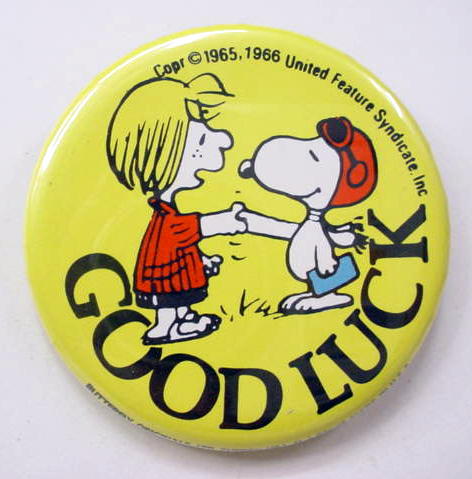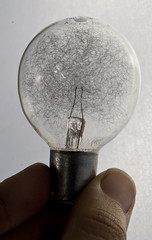
The following is from Emily Leary, Assistant Director of the APA Office of Precollege and Undergraduate Programs, regarding items of interest from the APA and TOPSS (Teachers of Psychology in Secondary Schools) to all high school psychology teachers. If you would like to be included on Emily's email listing, please contact her at the address below.
APF Professional Development Awards for High School Psychology Teachers
The purpose of these awards is to help high school psychology teachers travel to and attend regional or national teaching and/or psychology conferences.
Applicants may be awarded up to $250. Funds can be used to offset costs of travel, conference registration, and housing accommodations. Applications to attend the APA Convention (August 4-7, 2011, Washington, DC; www.apa.org/convention) are encouraged. $2,500 is available for funding. These grants are made possible through a generous gift from Dr. Lee Gurel.
The application deadline has been extended until May 1, 2011; for details on how to apply, visit http://www.apa.org/apf/funding/professional-topss.aspx.
APF High School Psychology Teacher Network Grants
The purpose of these grants is to support the development of local and regional networks of psychology teachers and to support a local or regional teaching workshop or conference for high school psychology teachers. APF is particularly interested in proposals for professional development opportunities for teachers that could lead to the formation of a new regional network of psychology teachers. APF will award $1,500 in grants in 2011. These grants are made possible through a generous gift from Dr. Lee Gurel.
The application deadline is May 1, 2011; for details on how to apply, visit http://www.apa.org/apf/funding/psychology-teacher-network.aspx.
APA TOPSS Poster Competition for High School Psychology Students
TOPSS is pleased to announce the 2011 APA TOPSS Poster Competition for High School Psychology Students. There will be four winners, each of whom will receive a $250 award.
Topic: Although psychology has historical roots in the discipline of philosophy, a contemporary definition of psychology states it is the scientific study of behavior and mental processes. The American Psychological Association (APA) recognizes psychology as a diverse scientific discipline with nearly boundless applications in everyday life. In this competition, students will design an original visual poster on the theme “Psychology is a Science,” and also submit a written explanation of the poster and theme.
The submission deadline is June 1, 2011; please visit http://www.apa.org/ed/precollege/topss/poster-competition.aspx for competition details, rules, scoring rubric, and submission information.
Call for Nominations: 2011 TOPSS Committee Elections
The mission of TOPSS is to promote introductory and advanced high school psychology, meet curricular and professional needs of secondary school teachers; and provide opportunities for high school students to be recognized and rewarded for their academic excellence. If you would like to become more involved in TOPSS, and are interested in gaining leadership experience and positively impacting the teaching of high school psychology, we encourage you to consider serving on the TOPSS Committee. TOPSS is especially interested in encouraging individuals from diverse backgrounds (including diversity in race/ethnicity, gender, ability/disability, sexual orientation, age, and religion) to consider running for TOPSS Office. In 2011, the following three elected positions will be filled: Chair (three-year term), Member-at-Large (two-year term), and Membership Coordinator (two-year term).
Nominations are due by July 1, 2011. Visit http://www.apa.org/ed/precollege/topss/call-for-nominations.aspx for additional information.
APA Annual Convention
All high school psychology teachers are encouraged to consider attending the APA Annual Convention (www.apa.org/convention), being held August 4-7, 2011, in Washington, DC. TOPSS is pleased to announce the 2011 TOPSS Invited Addresses; the following sessions will be held Friday, August 5, and Saturday, August 6, 2011:
- Barney Beins, PhD, Ithaca College, Ithaca, NY; Psychology: Gateway to Critical Thinking and Scientific Literacy
- April Bleske-Rechek, PhD, University of Wisconsin-Eau Claire, Eau Claire, WI; The Lee Gurel Lecture: A Primer on Evolutionary Psychology: Foundational Ideas, Exemplary Research, and Criticisms
- Jessica Henderson Daniel, PhD, Boston Children’s Hospital, Cambridge, MA; Teaching Adolescents about Adolescents: Using Mirrors that Focus on Race, Ethnicity and Gender
- Gil Einstein, PhD, Furman University, Greenville, SC; Remembering to Perform Actions in the Future: Can Intentions Pop into Mind?
- Regan Gurung, PhD, University of Wisconsin Green Bay, Green Bay, WI; Maureen McCarthy, PhD, Kennesaw State University, Kennesaw, GA; Katherine Minter, Westwood High School, Austin, TX; and Steve Behnke, PhD, JD, APA Ethics Office, Discussant; Ethical Issues in the Introductory Psychology Course
Also, please join TOPSS for a reception on Saturday, August 6, from 5:00 – 5:50 PM, at the Grand Hyatt Washington Hotel (Burnham Room).
Membership
The TOPSS Website is http://www.apa.org/ed/precollege/topss/index.aspx. For only $40 a year, high school psychology teachers can join APA as affiliate members and become a member of TOPSS. To join TOPSS, visit http://www.apa.org/membership/hs-teacher/index.aspx. Benefits include access to 19 Unit Lesson Plans, subscriptions to the monthly APA Monitor magazine and quarterly Psychology Teacher Network newsletter, and more!
Please contact Emily Leary by e-mail (eleary@apa.org) or at (202) 572-3013 if you have any questions.
















